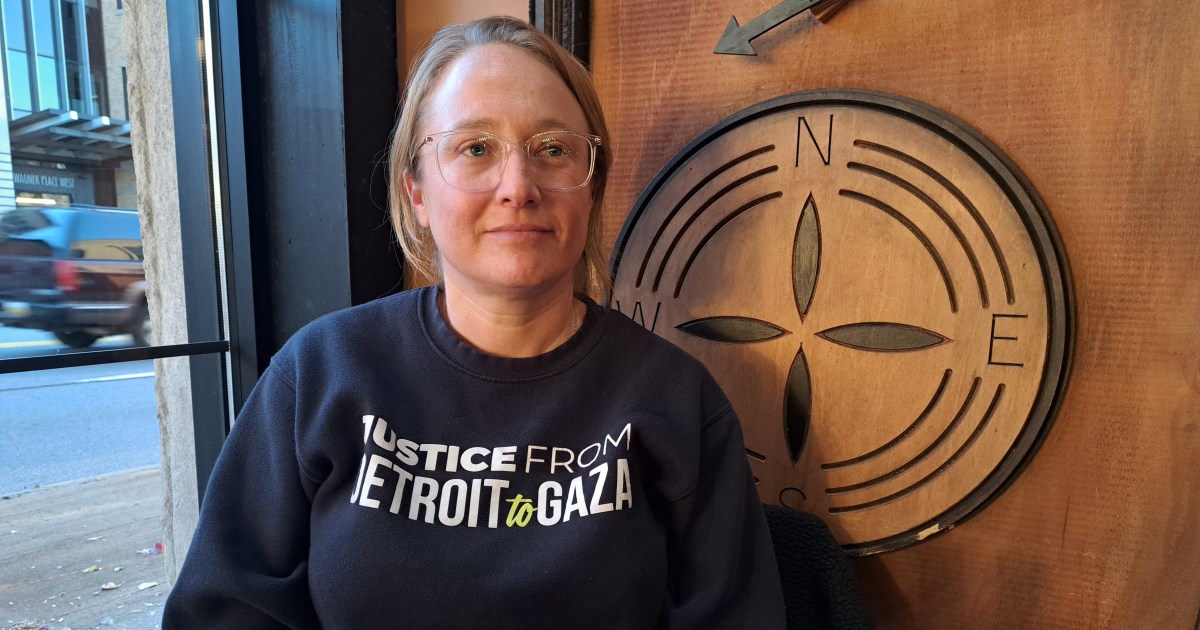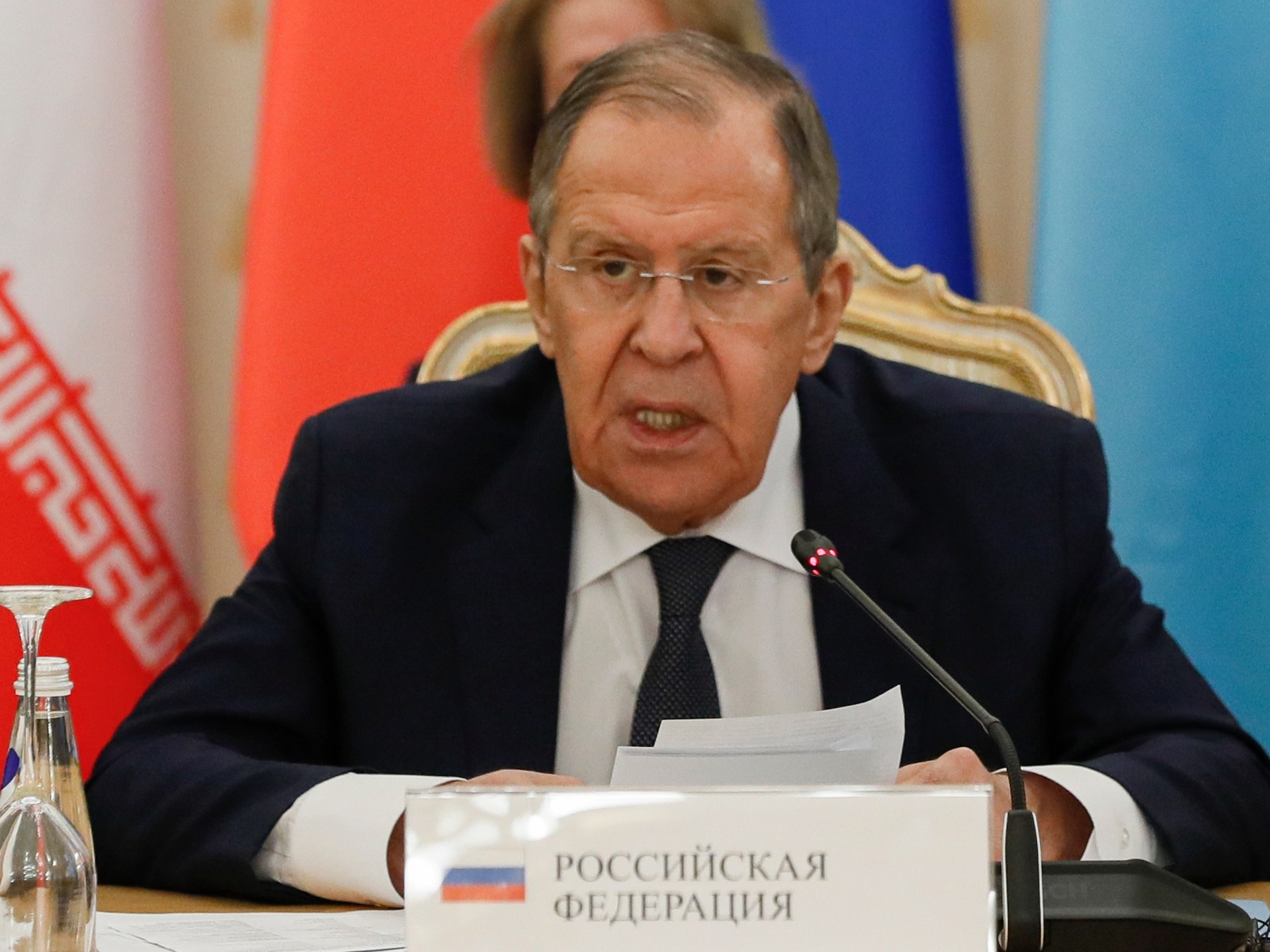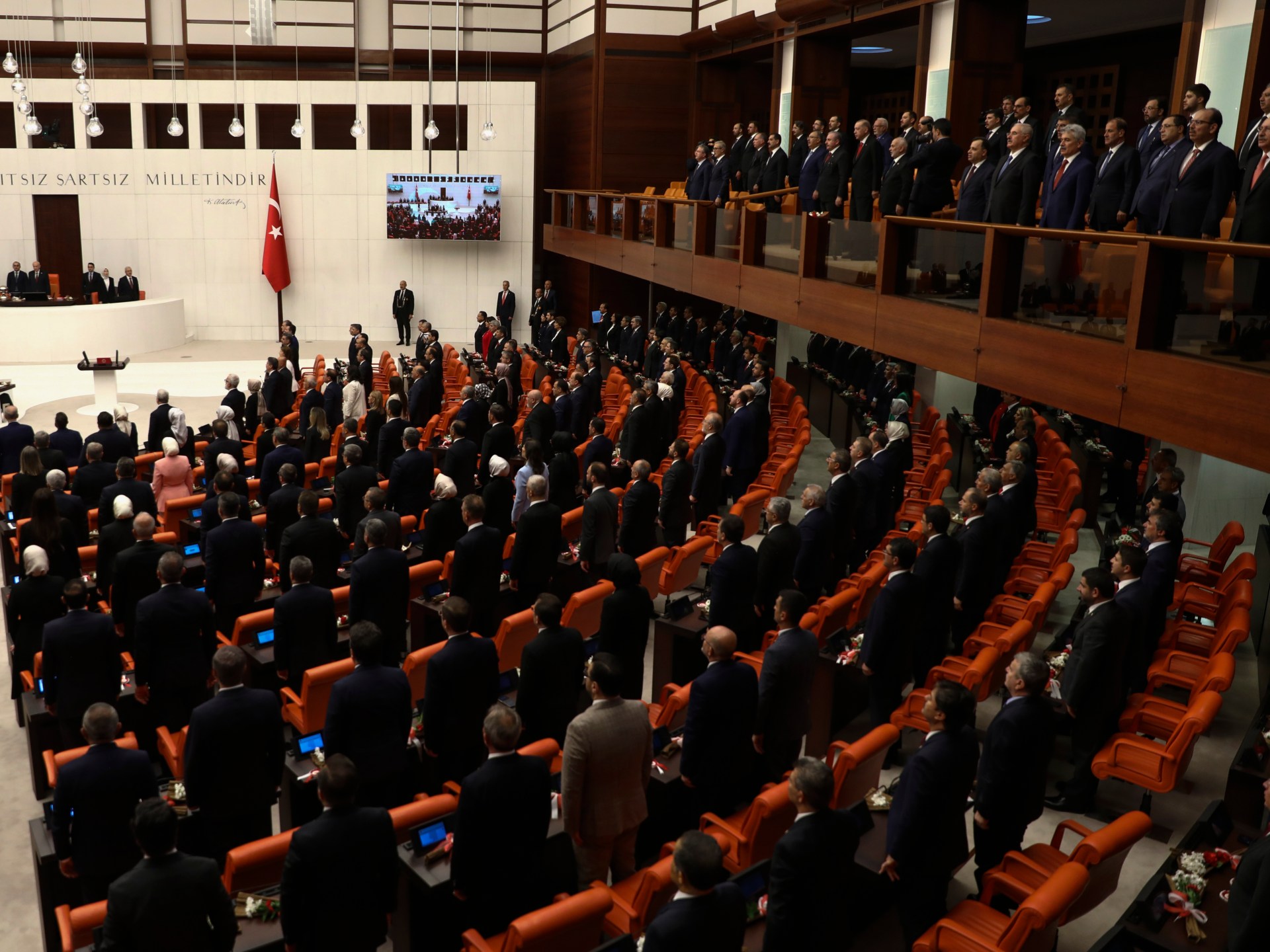
Dearborn, Mich. – Dana Kornberg grew up in a Jewish-American household and was in her early 20s when she began becoming critical of the Israeli government.
It was 2006 and Kornberg was touring Israel as part of a so-called Birthright trip, a tradition for Jewish teenagers and young adults.
During her trip, she saw Israeli construction workers building a tall concrete building barrier Fence parts of it occupied West Bank, a landlocked Palestinian territory. She also heard Israeli comments about Palestinians that made her uncomfortable: “They were called dangerous.”
These experiences made her concerned about Israel’s treatment of Palestinians – something that evoked in her parallels to Jewish oppression throughout history.
“It was terrible for me,” said Kornberg, now 41 and an assistant professor of sociology. “What lessons have we learned from what our people have been through?”
Now, as Israel’s war in Gaza rages on, Jewish American voters like Kornberg are grappling with the U.S. role in the conflict — and how that will affect their voting preferences in Gaza upcoming presidential election.
Jewish-American voters have long been considered a reliable Democratic voting bloc: The Pew Research Center called them “one of the most consistently liberal and Democratic groups in the U.S. population.”
During the last presidential election, eight out of 10 Jews identified as Democratic. But U.S. policy toward Israel and the war in Gaza has since divided both Jewish Americans and the general public Democratic basewhich led to fears of low voter turnout.
On the one hand, President Joe Biden has continued to win strong support among Jewish voters by pledging his “steadfast and unwavering” support to Israel as it wages a months-long military operation in Gaza.
However, this attitude has caused an outcry among more progressive Jewish organizations as the death toll in the Palestinian enclave rises to more than 25,200.
Questions of advancement anti-Semitism In the US, Jewish interest groups have also mobilized ahead of what is expected to be a closely contested race for the White House in November.
A poll conducted in January by USA Today and Suffolk University showed Biden narrowly trailing his Republican primary rival, the former president Donald Trump. Biden received 37 percent support in the survey, while Trump received 39 percent.
Other polls have found foreign policy to be a top issue for voters this year. A majority of Americans support a ceasefire in Gaza, which Biden has done refused to call.
Kornberg, a member of the progressive organization Jewish Voice for Peace (JVP), is among those protesting against Biden’s stance on the war in Gaza, the danger of which United Nations experts have warned genocide And famine.
In recent months, Kornberg traveled from Michigan to Washington, D.C. and Chicago to join demonstrations calling for a ceasefire. She was one of nearly 100 protesters arrested in November for blocking the Israeli consulate in Chicago.
Kornberg questioned whether Biden would be able to mobilize Jewish American voters ahead of the general election. Even the prospect of a second Trump presidency, she warned, might not be enough to unite the Democratic base.
“I’m just not convinced that fear of Trump will be enough to get him [Democratic voters] go to the polls,” said Kornberg.
She also criticized Biden for his statements, which he downplayed Palestinian death toll and to tie the well-being of Jews worldwide to Israel.
“When Biden says things like, ‘The only place Jews can feel safe is Israel,’ that is an extremely anti-Semitic comment because many of us heard it as if Jewish people shouldn’t be safe in this country “she said USA.

But the question of how Israel is perceived — and whether its actions in Gaza are justified — is an issue that has divided Jewish American communities along generational lines.
A Opinion poll In November, the Jewish Electorate Institute found that Biden continued to enjoy strong Jewish support overall: three-quarters of participants approved of his handling of Israel’s war in Gaza.
However, this number declined when young Jewish Americans were considered in isolation.
Only 53 percent of Jewish voters ages 18 to 35 agreed with Biden’s stance, compared to 82 percent in other voting age groups.
Still, attendees overwhelmingly supported Biden. An estimated 68 percent said they would vote for the Democratic incumbent, compared with 22 percent for Trump and 11 percent who were undecided.
Halie Soifer, CEO of the Jewish Democratic Council of America, a pro-Israel advocacy group, acknowledged this high level of support for shared values.
“The vast majority of Jewish voters support President Biden because he represents the interests and values of the Jewish community, including – but not limited to – support for Israel,” Soifer told Al Jazeera.
She also mentioned “abortion, democracy, gun safety, climate change, economics.” [and] Anti-Semitism” as “key issues driving Jewish suffrage.”
But Soifer added that she saw renewed partying engagement afterward October 7ththe day the Palestinian group Hamas launched attacks on southern Israel, killing an estimated one person 1,200 people.
“Jewish voters are more likely to identify as Democrats than Republicans by a margin of nearly 50 percentage points. This only became solidified after October 7,” Soifer explained.
Her organization also saw an increase in support after the Hamas attack, she added.
Progressive and anti-Zionist Jewish American advocacy groups also reported a significant increase in membership following the start of the war in Gaza.
“Since October 7, our following and base has doubled or more in almost every way,” said Liv Kunins-Berkowitz of Jewish Voice for Peace.
“We now have over 1.8 million followers on our social media accounts and over 720,000 people that JVP counts as our base. They subscribe to our email list and regularly participate in JVP’s campaigns, demonstrations and workshops.”

The Jewish-American population totals about 7.5 million people, or about 2.4 percent of the total number of people in the United States.
And while the U.S. Congress is overwhelmingly made up of politicians who identify as Christians, Jewish leaders make up the majority of non-Christian officials. They hold 33 elected positions in Congress, totaling six percent of the available seats.
Some of those officials, including Senate Majority Leader Chuck Schumer, appeared at one March for Israel on November 14. Tens of thousands of people gathered in Washington, DC for this march where “no ceasefire“ could be heard.
“Even in its darkest days, the United States has always stood with Israel, and we will do everything we can to make sure that never changes,” Schumer said, punctuating his words with raised fists as the crowd cheered.
But even among Jewish representatives in Congress, there are disagreements over the extent to which the United States should support Israel’s far-right government.
Schumer’s colleague, Senator Bernie Sanders, recently called the war in Gaza “extensive destruction on an almost unprecedented scale.”
In January, Sanders criticized the Israeli government for its “deeply reckless and immoral actions” but stopped short of calling for a ceasefire point of contention with its progressive base.
Instead, he proposed a resolution that would urge the U.S. State Department to disclose whether U.S. assistance was used in human rights abuses in Gaza. However, this suggestion was defeated last week in the Senate.

But opposing Israel can come with political costs. In recent years, major pro-Israel groups such as the American Israel Public Affairs Committee (AIPAC) and Democratic Majority for Israel have spent record amounts against Democratic candidates who have not openly expressed their support for Israel.
In 2022, for example, AIPAC and Democratic Majority for Israel spent more than $6 million — an unprecedented sum — on an attack advertising campaign against Donna Edwards, a progressive candidate for the U.S. House of Representatives.
Edwards, who previously served in the House from 2008 to 2017, ultimately lost her race.
Sociology professor Kornberg fears that progressive Jewish voices like hers could go largely unheard in the upcoming election.
“There is a deadlock on the part of Democrats as their voters, in an unprecedented way, overwhelmingly want a ceasefire [in Gaza]and they just don’t listen,” she said.
“Why do we elect people who don’t represent us?”






Recent Comments